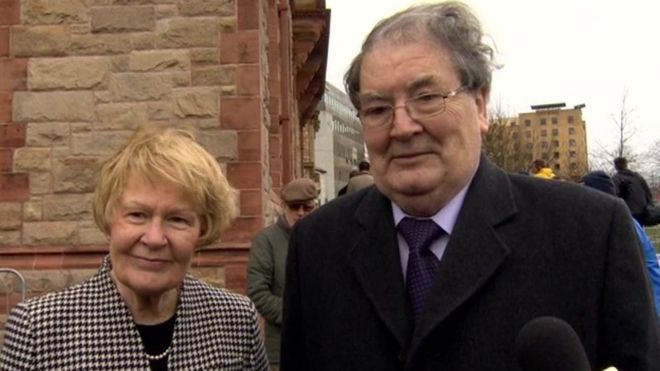
The late former SDLP leader and Foyle MP John Hume and wife Pat
The Foundation’s Vice-Chairperson Dympna McGlade set out the rationale behind the need for such a plan, which she said would reflect the desire of people for a shared future.
Ms McGlade was speaking at the Foundation’s first discussion on ‘A Shared Home Place – the Unfinished Business of Reconciliation’.
She said: “Peace building was hampered by unsustainable political leadership, the lack of resources and support, avoidance and denial of key issues with no societal approach to a shared future.
“Unfortunately 22 years after the Good Friday Agreement we have to accept that our two biggest (political) parties operate from an opposing, competing and uncompromising agenda.
“I suggest we move to the next stage of the peace process and produce a peace plan for the time we are in – simple and ‘to the point’ peace and reconciliation speak that people on the street will understand and hopefully buy into.
“People still want to move from segregation to integration and examples of this can be found in the 2017 Northern Ireland Life and Times survey, which stated that 78% respondents stated a preference for living in a mixed neighbourhood and 89% respondents said they would prefer to work in a mixed workplace.
“I am not saying achieving peace and reconciliation is easy, it is not.
“The current context that we are living in poses additional challenges to the peace process.
“Brexit has a huge implication for the peace process, the economy and potential impact on constitutional and legal matters including the European Convention on Human Rights which the British Government are reluctant to formally agree to.”
Ms McGlade said key to achieving actual peace and reconciliation were a number of issues, including legacy and paramilitarism, which continue to have a hold on working class communities, and ensuring women had a central role.
This was the first topic under discussion by the Foundation which is available on YouTube.
A follow up event on the same topic is scheduled to take place next Thursday, December 10.





